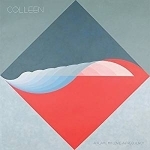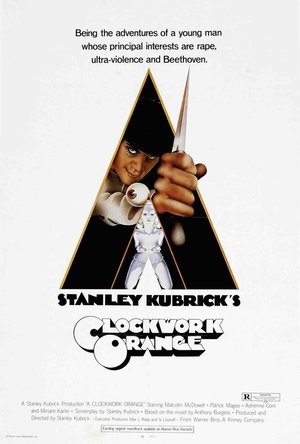Search

Radio HQ (lite version)
Music and Entertainment
App
"Radio HQ (lite version)" is a modern internet radio receiver that enables you to listen lots of...
Steven Fell (41 KP) rated Nothing is True & Everything is Possible by Enter Shikari in Music
Apr 21, 2020 (Updated Apr 21, 2020)
Mix of old and new styles of Shikari (3 more)
Songs that are going to be incredible live
Satellites message
Overall a solid set of songs
Will divide fans (2 more)
Pace is up and down
May be hard to sell for new listeners of the band
The definitive album?
Nothing is true and everything is possible is the 5th studio album by Enter Shikari was released on Friday 17th April 2020 containing 15 'songs'. While speaking about the album before release Rou the lead singer and only producer of the album described the album as the definitive Enter Shikari album. This statement is very important and for me changed how I listened to the album. For the most part I agree with Rou. It's an album full of songs that could fit into any of Shikari's previous albums or even their side project Shikari sound system. It also gives us clues into a new direction they may want to take.
This is also the problem NITEIP may face with dividing fans. Shikari's last album The Spark was met with some hesitation from the band's most devoted fans from being very different from say their earlier work like take to the skies and common dreads. Taking a more 'softer' approach and really letting Rou's voice carry the songs. The Spark happens to be my favourite Shikari album and I think Rou has one of the greatest lead singer voices in recent times and doesn't always get the recognition he deserves.
Two songs that I beileve may take diehard fans out of the album are crossing the Rubicon and The pressures on. Both are very 'poppy' and could easily be slotted onto a more main stream bands album. Although crossing the Rubicon has a little Easter egg back to labyrinth and a catchy chorus which will get stuck in your head. Crossing the Rubicon does feels weirdly out of place though, sandwhiched between the quite frankly phenomenal opening track the great unknown and the lead single the dreamers hotel which also deserves credit for being a tune that will surely make people 'pop' live, it is also rightly in my eyes the lead single.
Shikari gifted us with five songs just before release the great unknown, the dreamers hotel, the king, T.I.N.A and satellites. All of these songs are brilliant and really got me excited for the album but compared to the other tracks may leave people disappointed that this isn't the style throughout the album. However I found myself loving the slower pace to both parts of waltzing of the face of the earth. Marionettes is another two parter which is also slower to begin with in part one but builds brilliantly into Marionettes part 2s chorus which is an absolute blast and I find my self bellowing it out. It showcases both rou's incredible writing and beautiful voice with the line "our minds are firewood and now we spark the match, we set ourselves alight" being my favourite lyrics on the entire album.
Satellites the second single off the album released the day before the album dropped is a very passionate piece that was wrote by Rou and in his own words was to show his compassion towards the LGBTQ community. "So we don't hold hands in daylight" a line from the song in which rou's friend told him he was scared to do brings you instantly into one of Shikari's most meaningful and deeply involving songs throughout their discography. Another song that is surely going to be a hit and already been given great feedback online which also manages to show that Rou's writing is both on top form and evolving album to album.
T.I.N.A was my least favourite of the songs released before the album but is cleverly placed after Reprise 3 which is an Easter egg fans will crave and really makes T.I.N.A one of the standout tracks. The king my personal favourite from the album is a song that feels both familiar and fresh which I wish was placed last to close out the album but I also understand finishing with waltzing of the face of the earth part 2 as a come down song but this may again take people away from the album wanting to finish on a banger.
Modern living is one of the songs that really caught my ear on my first play through and even made me instantly replay it. It has a very nineties vibe which you could imagine a band like blur releasing. It is followed by apocholics anonymous which for me is a skipable track that although feeds from modern living doesn't add to it like reprise 3 does for T.I.N.A.
Elegcy for extinction is a completely different beast compared to anything Enter Shikari have released before. It's a orchestral piece with no lyrics that would easily fit on a film score and even sounds Disney esque to begin with before possibly finishing in a battle. Well that's how I saw it in my head. This is another song that may divide people but it's a compelling piece that makes me believe the band could easily venture into movie scores into the future which is something I didn't know I needed.
Special mention needs to go for creating an album where it feels every type type of instrument was used and to full effect. I also believe this is the album where Rob Rolfe really gets to shine on drums. To me it feels like you can hear his confidence come through in some of the most intense songs.
To summarise this does feel like a collection of Shikari styles which will both please and annoy fans. For me I found it a pleasant surprise and came at a time where we all needed a pick up. Shikari have always managed to blend genres of music and this is an album showcasing their talent to do just that, even managing to tackle classical. As for it being the definitive album I would have to agree with Rou with it being an album that manages to make me reminisce and look forward to the future.
Thanks for reading and I hope you enjoy the album. Stay safe.
Steve
This is also the problem NITEIP may face with dividing fans. Shikari's last album The Spark was met with some hesitation from the band's most devoted fans from being very different from say their earlier work like take to the skies and common dreads. Taking a more 'softer' approach and really letting Rou's voice carry the songs. The Spark happens to be my favourite Shikari album and I think Rou has one of the greatest lead singer voices in recent times and doesn't always get the recognition he deserves.
Two songs that I beileve may take diehard fans out of the album are crossing the Rubicon and The pressures on. Both are very 'poppy' and could easily be slotted onto a more main stream bands album. Although crossing the Rubicon has a little Easter egg back to labyrinth and a catchy chorus which will get stuck in your head. Crossing the Rubicon does feels weirdly out of place though, sandwhiched between the quite frankly phenomenal opening track the great unknown and the lead single the dreamers hotel which also deserves credit for being a tune that will surely make people 'pop' live, it is also rightly in my eyes the lead single.
Shikari gifted us with five songs just before release the great unknown, the dreamers hotel, the king, T.I.N.A and satellites. All of these songs are brilliant and really got me excited for the album but compared to the other tracks may leave people disappointed that this isn't the style throughout the album. However I found myself loving the slower pace to both parts of waltzing of the face of the earth. Marionettes is another two parter which is also slower to begin with in part one but builds brilliantly into Marionettes part 2s chorus which is an absolute blast and I find my self bellowing it out. It showcases both rou's incredible writing and beautiful voice with the line "our minds are firewood and now we spark the match, we set ourselves alight" being my favourite lyrics on the entire album.
Satellites the second single off the album released the day before the album dropped is a very passionate piece that was wrote by Rou and in his own words was to show his compassion towards the LGBTQ community. "So we don't hold hands in daylight" a line from the song in which rou's friend told him he was scared to do brings you instantly into one of Shikari's most meaningful and deeply involving songs throughout their discography. Another song that is surely going to be a hit and already been given great feedback online which also manages to show that Rou's writing is both on top form and evolving album to album.
T.I.N.A was my least favourite of the songs released before the album but is cleverly placed after Reprise 3 which is an Easter egg fans will crave and really makes T.I.N.A one of the standout tracks. The king my personal favourite from the album is a song that feels both familiar and fresh which I wish was placed last to close out the album but I also understand finishing with waltzing of the face of the earth part 2 as a come down song but this may again take people away from the album wanting to finish on a banger.
Modern living is one of the songs that really caught my ear on my first play through and even made me instantly replay it. It has a very nineties vibe which you could imagine a band like blur releasing. It is followed by apocholics anonymous which for me is a skipable track that although feeds from modern living doesn't add to it like reprise 3 does for T.I.N.A.
Elegcy for extinction is a completely different beast compared to anything Enter Shikari have released before. It's a orchestral piece with no lyrics that would easily fit on a film score and even sounds Disney esque to begin with before possibly finishing in a battle. Well that's how I saw it in my head. This is another song that may divide people but it's a compelling piece that makes me believe the band could easily venture into movie scores into the future which is something I didn't know I needed.
Special mention needs to go for creating an album where it feels every type type of instrument was used and to full effect. I also believe this is the album where Rob Rolfe really gets to shine on drums. To me it feels like you can hear his confidence come through in some of the most intense songs.
To summarise this does feel like a collection of Shikari styles which will both please and annoy fans. For me I found it a pleasant surprise and came at a time where we all needed a pick up. Shikari have always managed to blend genres of music and this is an album showcasing their talent to do just that, even managing to tackle classical. As for it being the definitive album I would have to agree with Rou with it being an album that manages to make me reminisce and look forward to the future.
Thanks for reading and I hope you enjoy the album. Stay safe.
Steve
Chris Sawin (602 KP) rated A Clockwork Orange (1971) in Movies
Jun 15, 2019
Alex DeLarge (Malcolm McDowell) is your average eighteen year old boy...if by average, you mean he fully embraces the old ultraviolence and wanders the streets with his three droogs causing havoc and doing whatever he likes; skipping school, breaking and entering, rape, and assault is just another average day in Alex's life. However, when a planned rape turns into an "accidental" murder, things start to turn fowl for Alex. His droogs turn on him and he winds up being caught by the police. He is then taken to a correctional facility where he spends the next few years, puts on the front that he's fully embraced the bible and that he's now a changed man. But when word makes round of the experimental Ludovico treatment, Alex realizes his chance at freedom and jumps through the proper hoops to get out of the penitentiary he finds himself in and get into the experimental facility where he can be "cured."
Alex is promised that he'll be a free man within a fortnight. The treatment consists of a drug known as Serum 114 being injected into the patient before making them sit through short films such as a man being beaten to a pulp, a woman being the sexual victim of several men, and a Nazi concentration camp film set to the soundtrack of Beethoven's ninth symphony. Alex begins to feel sick during the films and the doctors insist that it's part of the cure. Alex's love for music and Beethoven in general become one of the adverse effects of the treatment as the ninth symphony has the same effect on Alex as the urge to beat or rape someone would. Alex soon comes to realize that you can never go home again and that being a free man isn't all it's cracked up to be, especially after a treatment such as this.
It took 37 years after its initial theatrical release and 24 years of being alive on this planet (the original viewing of this film was in 2008) to finally get around to seeing A Clockwork Orange. The film starts and it makes the viewer feel like they've missed something entirely that everyone else already knows about, but as the film unravels it snowballs into a unique vision of cinema. There are shades of Altered States in A Clockwork Orange, but A Clockwork Orange feels much more polarizing in its presentation in comparison. Stanley Kubrick tries to shine this spotlight of beauty onto the most heinous of actions as the film’s classical score becomes the soundtrack to ferocious and almost inhuman desires. This is Kubrick’s adaptation of the 1962 novel of the same name written by Anthony Burgess and it’s incredible how the film is able to remain captivating over a two hour period.
The film has a stunning restoration on the two-disc Blu-ray anniversary edition. Kubrick always had a brilliant eye when it came to perspective and camera placement; the majority of that could be contributed to Kubrick’s frequent collaborations with cinematographer John Alcott. The long hallway shots and close-ups on memorably haunting facial expressions are some of the most significant scenes in the film. A Clockwork Orange is loaded with vibrant colors that make every frame jump off the screen despite the film nearing half a century in age. This was the first film to take advantage of Dolby Digital surround sound, which contributes to the film sounding as good as it does.
Even with Stanley Kubrick as director, A Clockwork Orange wouldn’t be the same without Malcolm McDowell. McDowell fits the Alex DeLarge role as perfectly as Robert Downey Jr fits Tony Stark; these actors are these characters. The speeches McDowell gives in the film along with how traumatized he is after the treatment process are two of the biggest takeaways after viewing the film. This was one of McDowell’s first on-screen roles, which is surprising given how enthralling he is. You will never think of, “Singin’ in the Rain,” the same way again after viewing A Clockwork Orange.
A Clockwork Orange is a unique expedition into insanity no matter how you look at it. The dialogue is unusual and the characters are this fantastic blend of bizarre and diabolical, but the film is consistently engrossing and never seems to lag. Prior to 1986, the A Clockwork Orange novel was published in the US without its final chapter and that’s the version of the film Kubrick adapted. Anthony Burgess praised Kubrick’s version of the film despite this, which is more than what Stephen King did with Kubrick’s adaptation of The Shining. Every shot in A Clockwork Orange grabs your attention largely in part to how it’s presented or the colors that leap off the screen. The novel is written in a way that’s difficult to read and that often translates on-screen. Like most of Kubrick’s work, A Clockwork Orange is for a specific audience. It is perhaps what Malcolm McDowell is known best for and probably shouldn’t be recommended to just anyone since it would likely soar over a modern day moviegoer. This isn’t the type of film to have on in the background while you text or play games on your phone. Ultraviolence is something you have to embrace and give your undivided attention to.
This is viewed by some as one of the greatest sci-fi films ever by some, but it isn’t any less pretentious than the rest of Stanley Kubrick’s work. A Clockwork Orange is mesmerizing with a performance from Malcolm McDowell that leaves a long lasting impact, but its affinity to utilize difficult to decipher jargon, nonstop innuendo being slammed into your face, and overuse of animalistic violence shackles the film from being more appealing to a wider audience. From a personal standpoint, A Clockwork Orange is one of Kubrick's best but it's easy to understand why it wouldn't be for everyone.
Alex is promised that he'll be a free man within a fortnight. The treatment consists of a drug known as Serum 114 being injected into the patient before making them sit through short films such as a man being beaten to a pulp, a woman being the sexual victim of several men, and a Nazi concentration camp film set to the soundtrack of Beethoven's ninth symphony. Alex begins to feel sick during the films and the doctors insist that it's part of the cure. Alex's love for music and Beethoven in general become one of the adverse effects of the treatment as the ninth symphony has the same effect on Alex as the urge to beat or rape someone would. Alex soon comes to realize that you can never go home again and that being a free man isn't all it's cracked up to be, especially after a treatment such as this.
It took 37 years after its initial theatrical release and 24 years of being alive on this planet (the original viewing of this film was in 2008) to finally get around to seeing A Clockwork Orange. The film starts and it makes the viewer feel like they've missed something entirely that everyone else already knows about, but as the film unravels it snowballs into a unique vision of cinema. There are shades of Altered States in A Clockwork Orange, but A Clockwork Orange feels much more polarizing in its presentation in comparison. Stanley Kubrick tries to shine this spotlight of beauty onto the most heinous of actions as the film’s classical score becomes the soundtrack to ferocious and almost inhuman desires. This is Kubrick’s adaptation of the 1962 novel of the same name written by Anthony Burgess and it’s incredible how the film is able to remain captivating over a two hour period.
The film has a stunning restoration on the two-disc Blu-ray anniversary edition. Kubrick always had a brilliant eye when it came to perspective and camera placement; the majority of that could be contributed to Kubrick’s frequent collaborations with cinematographer John Alcott. The long hallway shots and close-ups on memorably haunting facial expressions are some of the most significant scenes in the film. A Clockwork Orange is loaded with vibrant colors that make every frame jump off the screen despite the film nearing half a century in age. This was the first film to take advantage of Dolby Digital surround sound, which contributes to the film sounding as good as it does.
Even with Stanley Kubrick as director, A Clockwork Orange wouldn’t be the same without Malcolm McDowell. McDowell fits the Alex DeLarge role as perfectly as Robert Downey Jr fits Tony Stark; these actors are these characters. The speeches McDowell gives in the film along with how traumatized he is after the treatment process are two of the biggest takeaways after viewing the film. This was one of McDowell’s first on-screen roles, which is surprising given how enthralling he is. You will never think of, “Singin’ in the Rain,” the same way again after viewing A Clockwork Orange.
A Clockwork Orange is a unique expedition into insanity no matter how you look at it. The dialogue is unusual and the characters are this fantastic blend of bizarre and diabolical, but the film is consistently engrossing and never seems to lag. Prior to 1986, the A Clockwork Orange novel was published in the US without its final chapter and that’s the version of the film Kubrick adapted. Anthony Burgess praised Kubrick’s version of the film despite this, which is more than what Stephen King did with Kubrick’s adaptation of The Shining. Every shot in A Clockwork Orange grabs your attention largely in part to how it’s presented or the colors that leap off the screen. The novel is written in a way that’s difficult to read and that often translates on-screen. Like most of Kubrick’s work, A Clockwork Orange is for a specific audience. It is perhaps what Malcolm McDowell is known best for and probably shouldn’t be recommended to just anyone since it would likely soar over a modern day moviegoer. This isn’t the type of film to have on in the background while you text or play games on your phone. Ultraviolence is something you have to embrace and give your undivided attention to.
This is viewed by some as one of the greatest sci-fi films ever by some, but it isn’t any less pretentious than the rest of Stanley Kubrick’s work. A Clockwork Orange is mesmerizing with a performance from Malcolm McDowell that leaves a long lasting impact, but its affinity to utilize difficult to decipher jargon, nonstop innuendo being slammed into your face, and overuse of animalistic violence shackles the film from being more appealing to a wider audience. From a personal standpoint, A Clockwork Orange is one of Kubrick's best but it's easy to understand why it wouldn't be for everyone.



